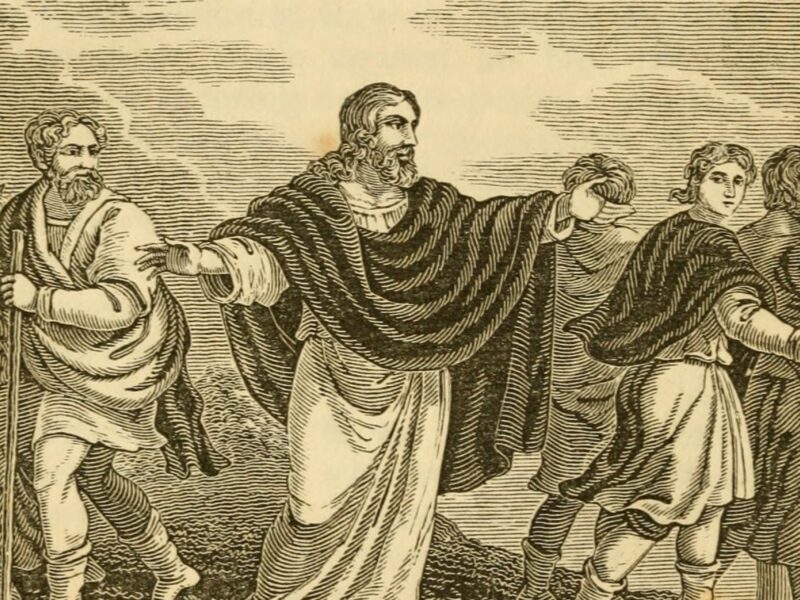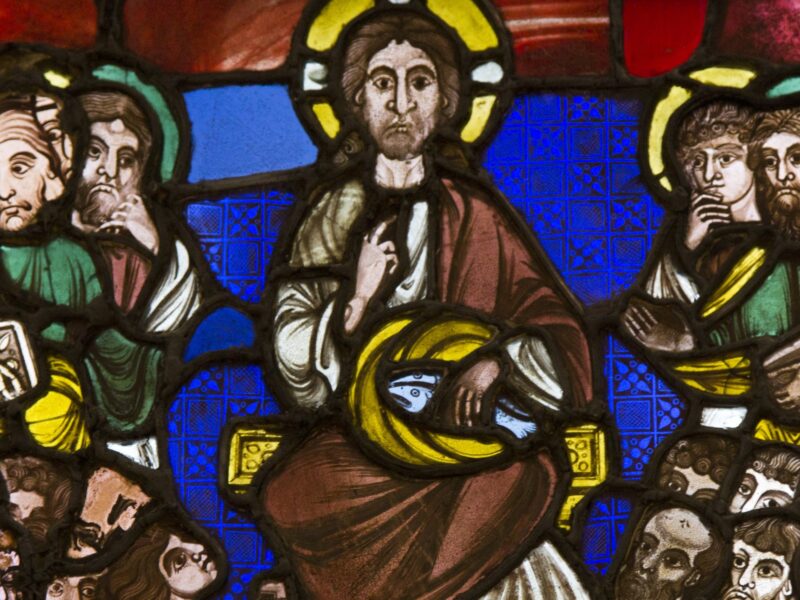
The Enemy’s Country Laid Waste
First Sunday of Lent. Fr Richard Ounsworth explains why Lent is truly a ‘joyful season’.
The first Preface for Masses of Lent reads
Each year you give us this joyful season when we prepare to celebrate the paschal season with mind and heart renewed?
Why should we see Lent as a ‘joyful season’? True Christian joy is not some vacuous, mindless and bland refusal to face up to all the things that make us sorrowful, and Lent is the proper time to remember especially our own sinfulness, our own weaknesses and failings — things that should indeed make us sorrowful.
But as soon as we remember our sins, we should also remember that Christ was tempted, tempted (as the Letter to the Hebrews reminds us) in all things as we are. He has enabled us to overcome our temptations, to pass through the wilderness of our weakness and into the Promised Land of Heaven, the Sabbath Rest of God. And this is what Saint Matthew has in mind when he portrays for us the temptation of Christ in the wilderness.
As the people of God spent forty years being tested in the wilderness, so Christ spent forty days being tested by Satan, the Accuser, in the wilderness. Although ultimately, by the grace of God, the People of Israel did pass through this time of trial and enter into the Promised Land, Moses their leader, and Aaron their first High Priest, had succumbed to the temptation to give up on God, and they never entered this place of rest. In today’s Gospel, we see Christ pass the test that they failed, because Christ shows us what it means never to give up on God.
And in the Jewish tradition the wilderness is not just a place of testing but also a place of visions, visions that reveal the hidden truths that underlie the events of our lives. Jesus’s time in the desert was also a time of visions, for he encounters this fallen angel, the Accuser, or (in Hebrew) the Satan, a creature who, like all angels, appears in visions and dreams to reveal the true nature of things.
But we need to be careful when talking of dreams and visions. It’s not that Satan’s appearance is purely in Jesus’s imagination, is not real. It would not be true to Saint Matthew’s account of this encounter between Christ and the Devil to imagine that it is purely symbolic: elsewhere Jesus claims that he has bound Satan and plundered his house (Matt 12.29), that he has seen the Devil fall from the sky (Luke 10.18). Rather than unreal, Jesus’s visionary meeting with Satan reveals a reality that is deeper than what appears on the surface.
In other words, by relating this encounter, Saint Matthew is showing us the deepest meaning of Jesus’s time in the wilderness. It was not a period of ‘time-out’ for him to discern the way forward for his own life, to struggle with his vocation, because his vocation was set out for him from the first moment of his existence. He didn’t go there to overcome his own ‘personal demons’, as people might say in a modern jargon they don’t mean literally. He went there to overcome our personal demons, to overcome the sins and failings of the Chosen People of God, to overcome evil itself, to overcome the effect of our sin which is death and separation from one another and from God. His time in the wilderness was not an exploration, but a triumphant march through the territory of the enemy, sweeping away the bonds of our slavery to sin.
At the beginning of his ministry, Jesus made the journey that no-one had made before, through the wilderness and into the Promised Land. And then, having forged a path through the desert of sin, he turned around, and came back to fetch the rest of us. His life, from its first moment to the fulfilment of his ministry on the Cross, was for us, for the forgiveness of our sins. His victory over Satan whose beginnings we hear about today was won for us, to break the bonds of sin that hold us in weakness and death.
So today let us remember our sins and remember that they have no more power over us. Let us remember death and remember that its sting is gone. Let us remember Satan, the Evil One, and remember that his house has been plundered, his kingdom is destroyed, his dominion is ended; and let us rejoice.


